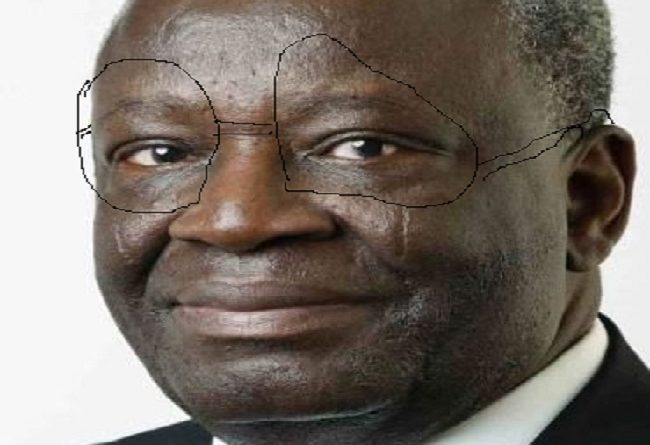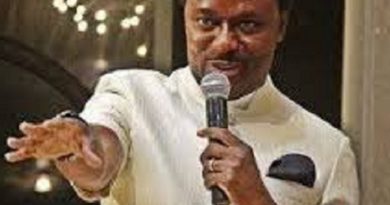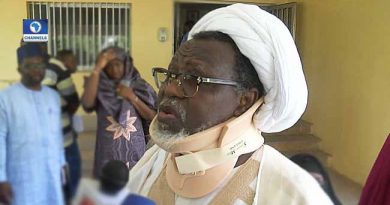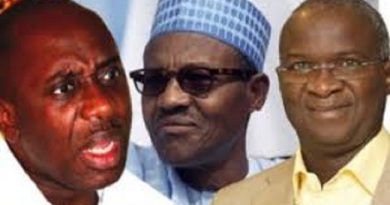Ibrahim Gambari’s Career Move Revealed
When the revered President Olusegun Obasanjo named retired General Abdullahi Mohammed his Chief of Staff shortly after taking office in 1999, the event caused hardly a stir.
It was a carryover from Obasanjo’s military days and stemmed from a desire to have as his gatekeeper a fellow military man who would control access to his principal, organize his workload and workflow with the discipline and efficiency Obasanjo had, according to his contemporary General TY Danjuma, brought to his duties as Chief of Staff, Supreme Headquarters when General Murtala Muhammad was Head of State,
Considering the myriad of issues competing for the president’s attention at any given moment, that was no easy task.
Nevertheless, the position was that of a factotum. It had no place in the Constitution. It was a creation of the president and existed at his pleasure. Gen. Abdullahi performed only such tasks as Obasanjo assigned him, and Obasanjo left no room for any of his appointees to entertain any doubt about who was in charge.
There is a school of thought that sees the chief of staff as a fixer-in-residence for his principal, the fellow who does the dirty work or absorbs the blame. That is not Obasanjo’s conception of the role. Obasanjo needs no fixer. Wherever any fixing is warranted, he does it himself and moves on. Tony Anenih was the PDP’s fixer, not Obasanjo’s.
Gen Abdullahi certainly knew his place. His modest, self-effacing persona perfectly complemented that of his principal’s hand-on, often-in-your face style. It is a measure of his suitability and Obasanjo’s judgement thereof that he lasted so long in that office without stirring controversy and without scandal
The usual stakeholders placed no notices in the media remarking Obasanjo’s patriotism, wisdom and commitment to national unity in appointing their illustrious, dutiful, high-achieving son, daughter, son-in-law, daughter-in-law, coursemate, club member, to the exalted position and pledging, in consequence, their unalloyed loyalty, unflinching support, and wholehearted cooperation.
Obasanjo’s laid-back successor Umaru Yar’Adua had no chief of staff, only a (chief?) private secretary, the spectral David Edevbie, planted in the Presidency by the calculating former Governor of Delta State, James Ibori, later a model inmate and now global chair of the alumni of Her Britannic Majesty’s Correctional Facilities System.
Edevbie had served as a commissioner for finance in Ibori’s Administration with great distinction that few were surprised at his promotion to the strategic post of private secretary to the President. Edevbie’s orders, it was rumoured at the time, included monitoring closely and reporting on the status of the EFCC’s ongoing case to bring Ibori to justice on charges of larceny on a scale almost beyond belief, and on Ibori’s counteroffensive, aided by police Inspector-General Mike Okiro to take the EFCC’s chairman, Nuhu Ribadu, out of the reckoning.
President Goodluck Jonathan had two chiefs of staff, Mike Oghiadomhe, a former deputy governor of Edo State, and retired Brig-Gen Jones Arogbofa. Neither of them made a difference in his bumbling performance. I have it on the highest authority that Jonathan rarely mastered his briefing papers and often dozed off at meetings he had himself convened to discuss important issues. Too much carousing the previous night with characters who had no business being in such a hallowed space, I was told.
President Muhammadu Buhari revived the office of Chief of Staff on taking office, and it quickly became perhaps the most powerful position in the cabinet. Kyari was not just chief of staff to the president, he was chief of the President’s cabinet. Buhari himself indicated that much when he directed ministers wishing to see him clear first with Kyari.
A chief of staff with that kind of remit certainly suited Buhari’s laid-back approach and what some have interpreted as his predilection for reigning rather than governing. But could Buhari have set out to create another locus of power beside himself?
Or did Kyari, seeing an opening, accumulate so much power to himself that, at the time he died last month from coronavirus disease, not a few Nigerians blamed the country’s woes on him, believing that he was for all practical purposes the one minding the shop?
To reframe the matter: Does the office make the holder, or is the holder that makes the office?
Chief Ernest Shonekan was the designated “Head of Government” in military president Ibrahim Babangida’s Transition Council, charged expressly with completing what remained of the stalled transition to democratic rule. Even under a military rule reputed for its duplicity, and despite its contrived ambiguity, the remit was elastic enough for a creative and well-meaning incumbent with an eye on history to pursue faithfully.
Not Shonekan. Soon after the Council went into business, its members discovered that Shonekan merely initialled their memos and forwarded them to Babangida without comment, Information Secretary Uche Chukwumerije, told me. Subsequently, they sent their memos directly to Babangida. Shonekan had in effect consigned himself to irrelevance in the scheme of things.
On the other hand, there have been unelected officials who, operating within the most circumscribed framework and holding unremarkable positions, gathered by accretion a great deal of power to themselves – power and influence well beyond what they most liberal remit could have sanctioned – and deployed it to change the entire landscape for better or worse.
One of the best illustrations of that phenomenon is the subject of Robert Caro’s 1974 engrossing biography, The Power Broker: Robert Moses and the Fall of New York. Robert Moses, a city planner, served as Parks Commissioner and in several identical posts in New York for more than three decades. By means subtle and brazen, he out-manoeuvred City Hall, elected mayors and state assemblies and state governors in making metropolitan New York what it is today for better and for worse.
All of which brings us to the appointment of Professor Ibrahim Gambari as Chief of Staff to the president, to succeed Abba Kyari.
From much of the commentary that has followed, and I suspect from his personal correspondence, you would think that Buhari had abdicated and yielded the office to Gambari. Even the Ilorin Royal Court, of which Gambari is a scion, has weighed in, congratulating Buhari on the wisdom of the choice. Great things are expected of him.
Personally, given his dazzling résumé, I think the genial professor is overqualified for the position. He has no business being anyone’s chief of staff. He should have thanked the president and declined. But he probably subscribes to the tradition that if the president asks you for a lawful and not unreasonable favour, you should not refuse. Plus, he probably sees it as the latest in a very long line of calls to service.
Those who expect him to work miracles will be disappointed. From his media interview, it is clear he regards the office as one of the modest possibilities. He will probably have to work around the edges to invest the Presidency with firmer purpose, clarity and direction, especially as regards domestic policy.
That would be no small achievement.




